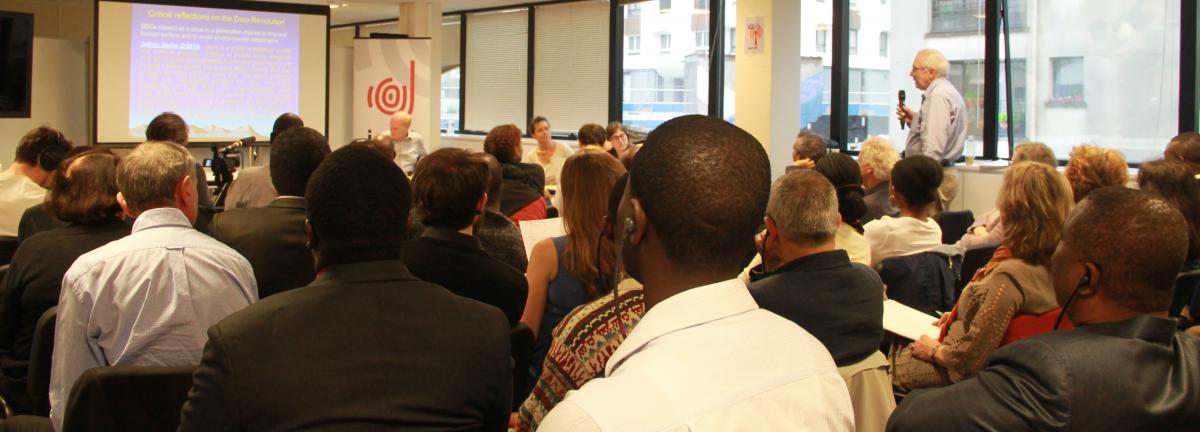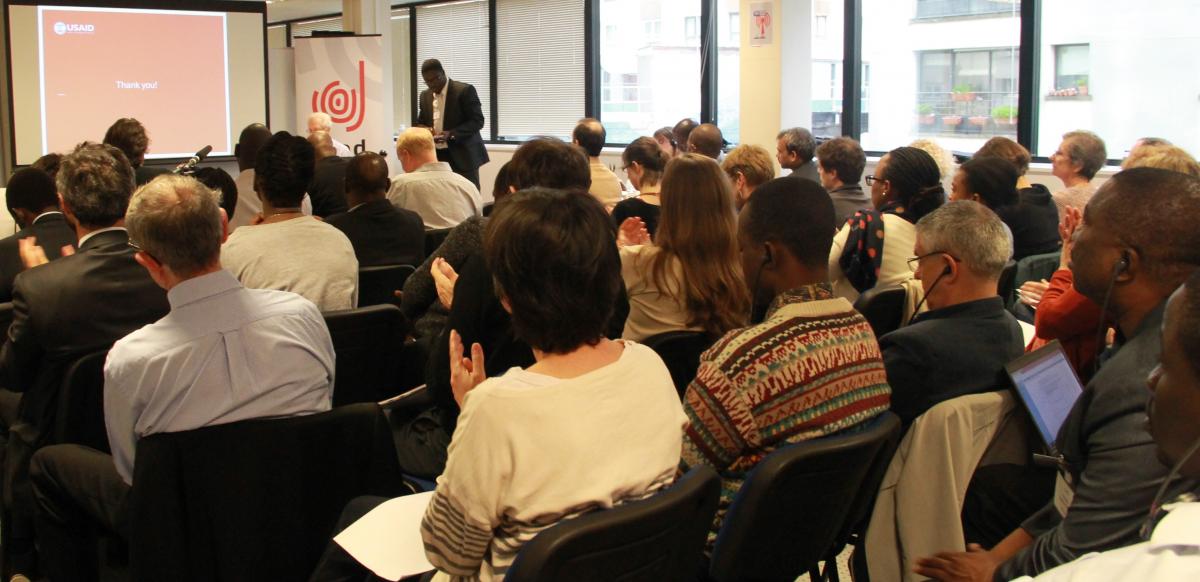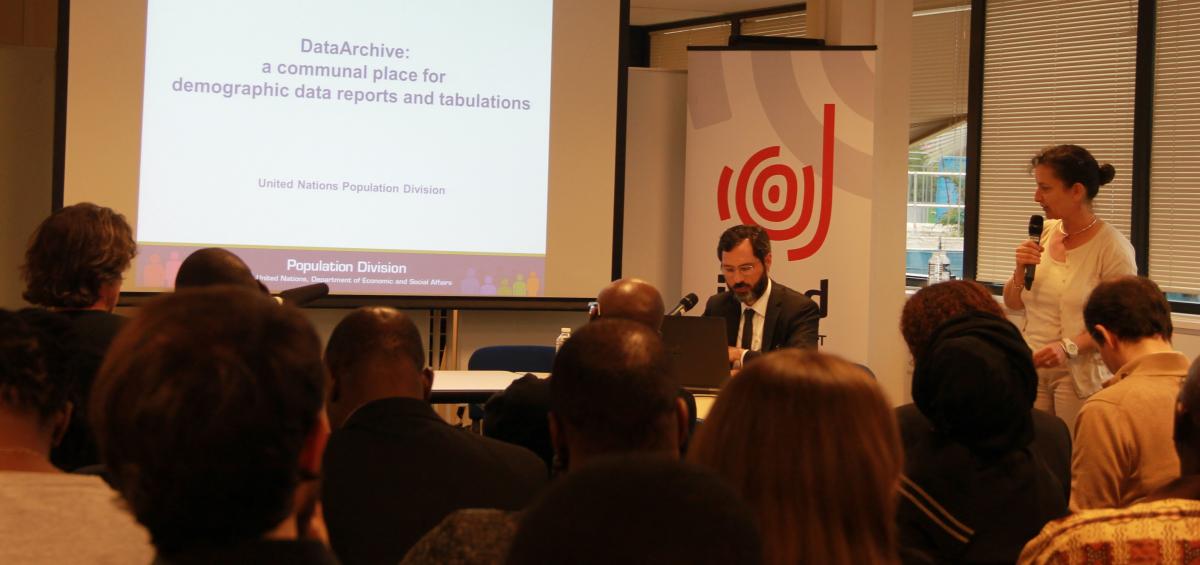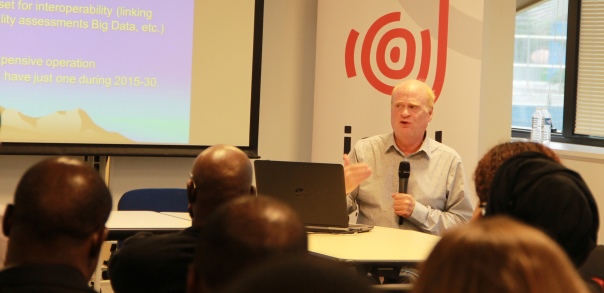The challenges of demographic data in Sub-Saharan Africa in the framework of the Sustainable Development Goals (SDGs)Paris, France, 31 May 2016 Organized by DEMOSTAF*, IUSSP and the French Institute for Demographic Studies (INED).
Update: All the presentations from the workshop are now available in video in English and in French. Read also the first issue of DEMOSTAF's newsletter in English and French.
In 2015, the Sustainable Development Goals (SDGs) succeeded to the Millennium Development Goals (MDGs). In order to monitor progress towards SDG targets, a specific attention is given to improve the quality, availability and access to data and statistics disaggregated by various characteristics: income, gender, age, geographic location... Urgent steps should be taken to ensure that no one is left behind. This is why the post-2015 agenda is closely linked to the “Data Revolution”, an international initiative that aims to improve the quality of statistics as well as information available to citizens.
Despite important progress achieved during the first fifteen years of the new millennium, efforts need to be maintained and sub-Saharan Africa must receive special attention because it has lagged behind on achieving several MDG targets. In addition, the evidence based on population dynamics in Africa remains limited. There is a dramatic deficit of classical demographic data at the national level which has been referred to as a “scandal of invisibility”. Very few African countries have a comprehensive system of civil registration and vital statistics (CRVS). There are major issues with national statistical systems in their ability to provide reliable and high-quality population data, and this translates into large uncertainties around demographic levels and trends. To address these critical gaps, the collection of data supported by development partners and academic groups has multiplied since the 1980s. In particular, large retrospective sample surveys have been conducted, including as the Demographic and Health surveys (DHS). Another prominent data source on population trends in Africa are Health and Demographic Surveillance Systems (HDSS).
The aim of this scientific meeting was to give an overview of the different challenges related to demographic data in Sub-Saharan Africa in the framework of the SDGs and identify levers to overcome these constraints. Ten speakers from a variety of backgrounds were invited to present their different perspectives on this topic. The meeting was attended by some 50 participants from all different regions in Africa but also from Europe and North America. Presentations were made in English or in French and simultaneous translation was available in both languages. The meeting was video-recorded and the videos can be accessed in both soundtracks on the DEMOSTAF website (in English and French). All the videos will be made available in both languages by the end of July. For the moment, you can watch videos of the presentations in English by Patricia Kelly Hall (Ipums-International), Sara Randall (University College London), Rajiv Ranjan (Paris21), Martin Bangha (INDEPTH network) and Tom Legrand (Université de Montréal, IUSSP).
*DEMOSTAF (Demography Statistics for Africa) brings together European and African research institutes as well as African national statistics offices (NSOs) in a staff exchange programme, for a period of 48 months, with the aim to advance research on emerging population issues in Sub-Saharan Africa (SSA). DEMOSTAF is built around four major population-related themes: fertility, mortality & health, households & families and education. The programme focuses on the articulation between quantitative data from national statistics and local data. Thanks to the close involvement of NSOs, the programme will consolidate and promote public statistics. DEMOSTAF involves 18 partners: 5 European academic institutions, 12 African partners (including 4 NSOs) from Burkina Faso, Kenya, Madagascar, Mali, Senegal and Uganda, and 1 Canadian partner. In total, almost one hundred individuals participate in the project, among them 74 researchers, statisticians, PhD students and librarians. The DEMOSTAF project has received funding from the European Union’s Horizon 2020 research and innovation programme under the Marie Skłodowska-Curie grant agreement No 690984.
See also:
Funding: The meeting also benefited from financial support through a grant from the William and Flora Hewlett Foundation to IUSSP to support demographers' participation in the Data Revolution. |
|




